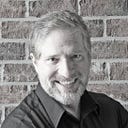Member-only story
Clinical training doesn’t necessarily result in learning
The difficulty and challenges to learn in clinical settings
Jerome Groopman, the author of How Doctors Think, explains that learning medicine was catch-as-catch-can. He compares residents observing attendings (or senior physicians who teach) to medieval apprentices observing master craftsmen. He writes, “somehow the novices were supposed to assimilate their elder’s approach to diagnosis and treatment.”
How we learn
People learn a wide range of tasks. They learn habits, both good and bad. They learn skills such as operating a forklift or a smartphone. They learn theories, beliefs, and even emotions. Sometimes learning is deliberate while other times it’s unconscious.
Learning involves a change in behavior, but it is more than that. Merriam-et al. define learning this way:
Learning is a process that brings together cognitive, emotional, and environmental influences and experiences for acquiring, enhancing, or making changes in one’s knowledge, skills, values, and worldviews.
